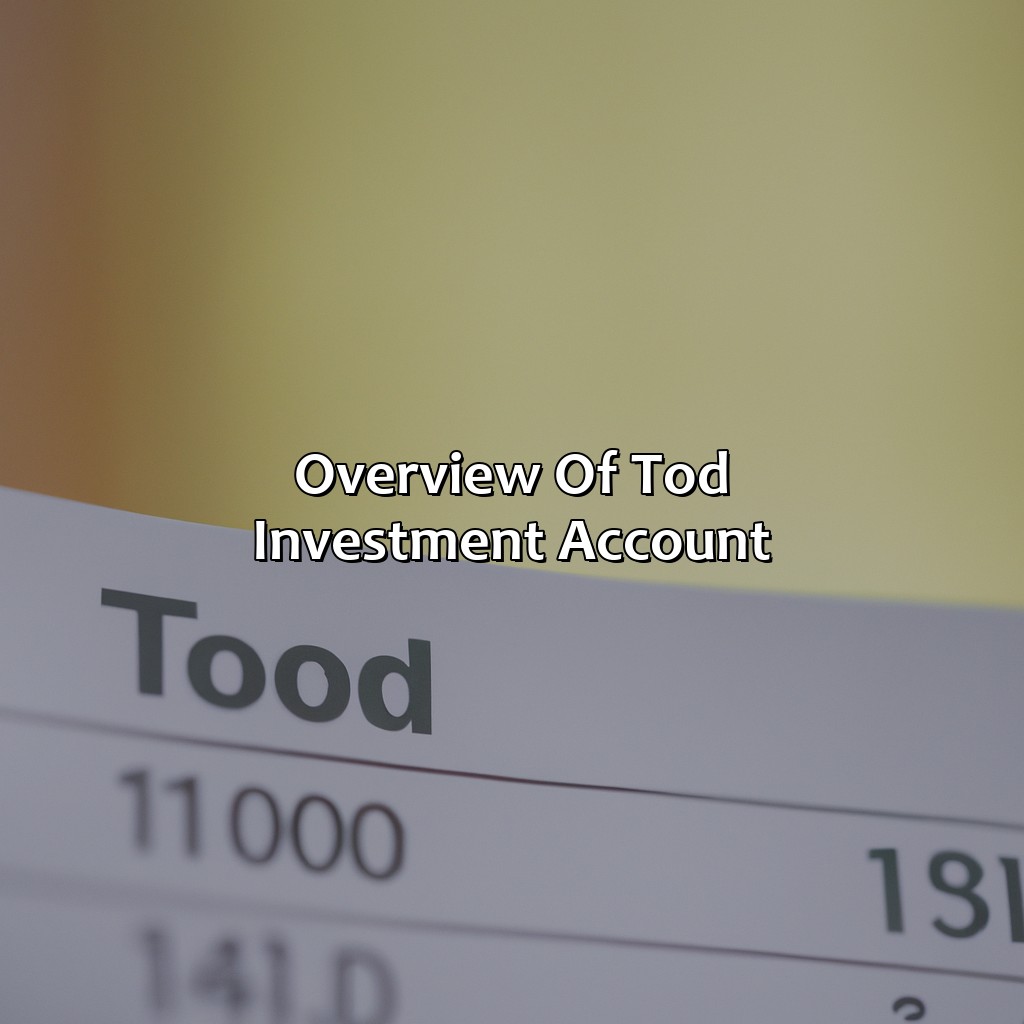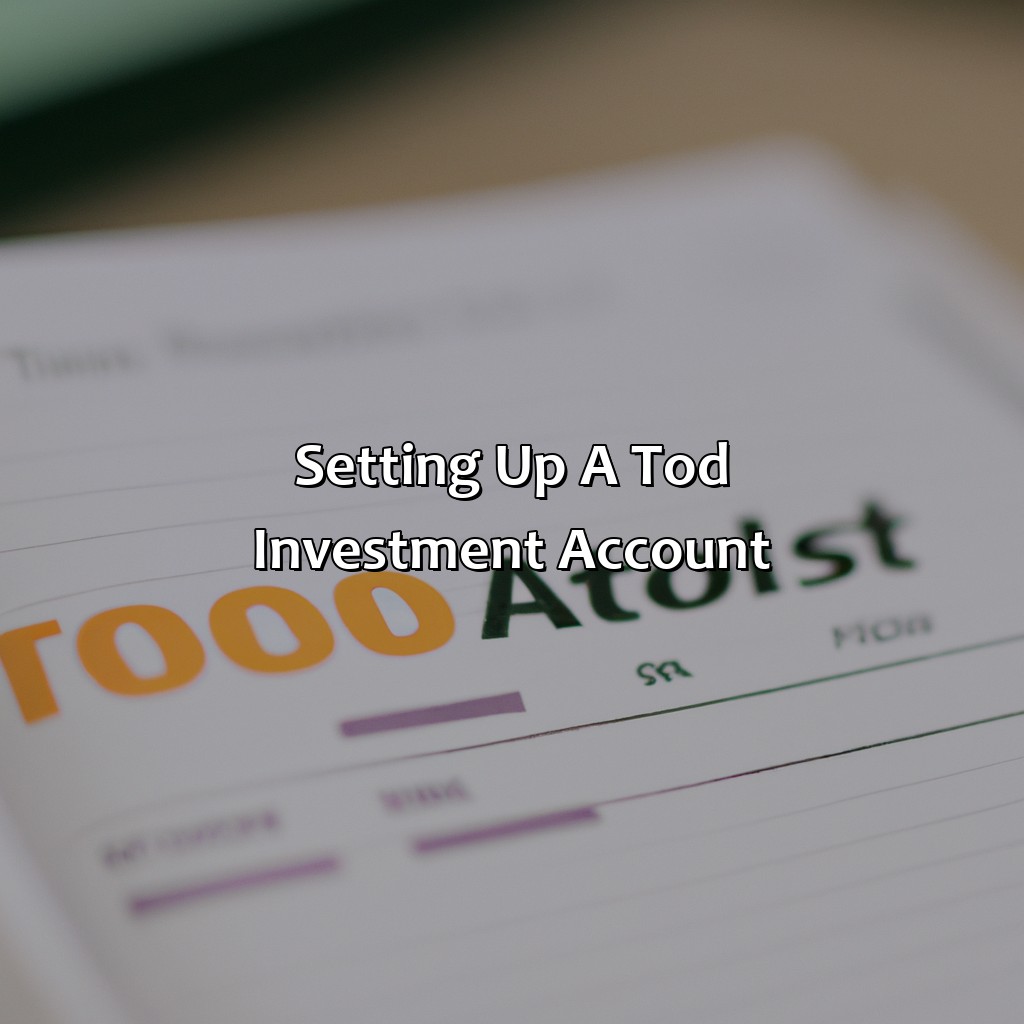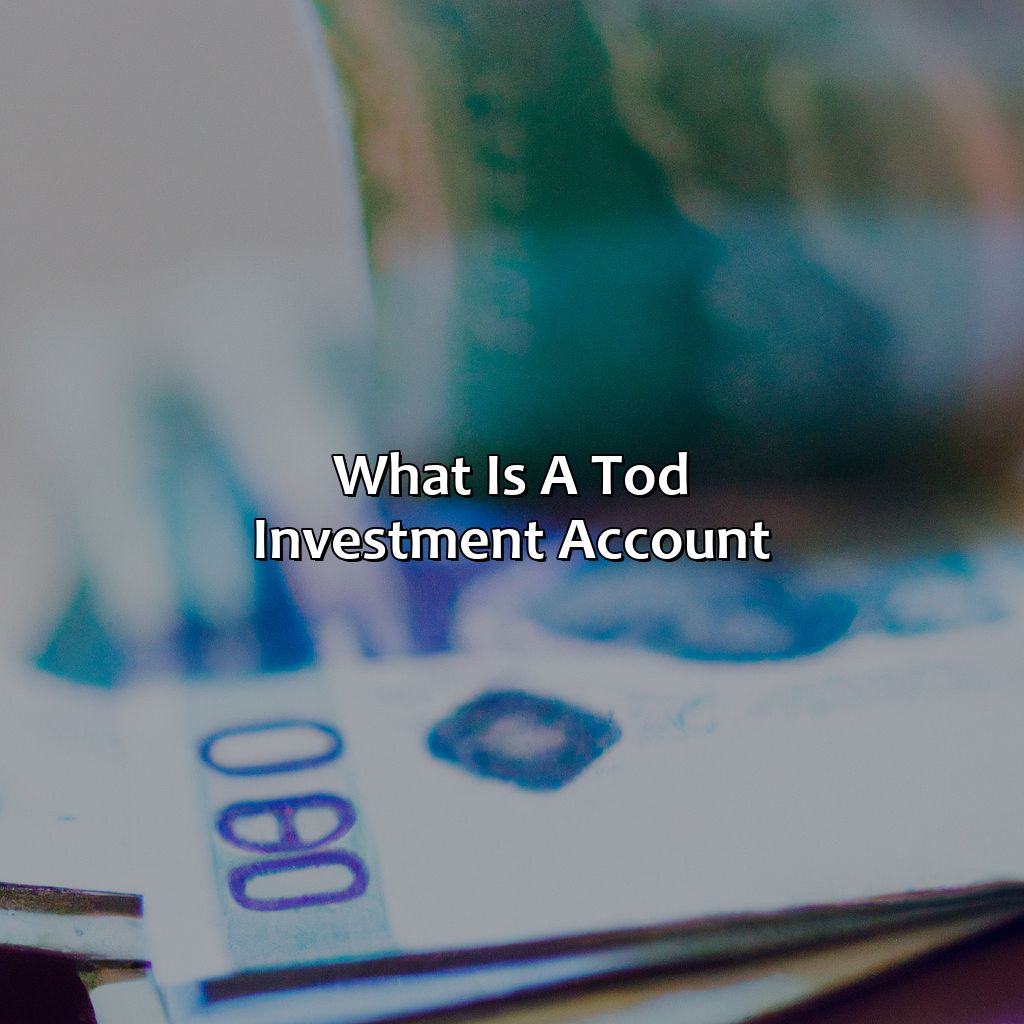What Is A Tod Investment Account?
Key Takeaway:
- A TOD Investment Account is a type of account that allows an individual to transfer assets to a designated beneficiary upon their death, without the need for probate. This type of account is particularly useful for individuals who want to ensure that their assets are distributed according to their wishes and avoid the time and expense of probate.
- Some of the key benefits of a TOD Investment Account include flexibility in the distribution of assets, ease of use, and avoidance of probate. By designating a beneficiary, individuals can ensure that their assets are transferred according to their wishes, without any unnecessary delays or expenses.
- Setting up a TOD Investment Account is a simple process that involves selecting a beneficiary, specifying the assets to be transferred, and reviewing and updating the account regularly. It is important to carefully consider the selection of a beneficiary and to update the account regularly in order to ensure that the account reflects the individual’s current wishes and circumstances.
You’re looking to invest, but you’re not sure how to do it. With a TOD Investment Account, you can make the most of your money. Get the knowledge you need to understand how a TOD Account can help you reach your investment goals.
Overview of TOD Investment Account
A TOD (Transfer on Death) Investment Account is a transfer on death investment account that allows an investor to designate beneficiaries who will receive the assets upon their death. This type of account avoids probate, providing a seamless transfer of assets.
With a TOD Investment Account, an investor can have multiple beneficiaries and can change them at any time as needed. Additionally, the account owner maintains control of the assets during their lifetime, making it a flexible estate planning tool.
Pro Tip: Consider creating a TOD Investment Account as part of your overall estate plan to ensure a seamless transfer of assets to your designated beneficiaries.

Image credits: retiregenz.com by Harry Duncun
Benefits of TOD Investment Account
A TOD Investment Account is an estate planning tool used for transferring assets to beneficiaries after the account owner’s death. Here are some of the benefits of this account.
- Probate avoidance: TOD accounts bypass probate and transfer assets directly to beneficiaries without court supervision.
- Flexibility: The account owner can change beneficiaries, investment options, and account funds.
- Privacy: TOD accounts offer more privacy compared to wills, which are public records.
- Cost-effective: TOD accounts are relatively inexpensive and do not require the assistance of an attorney or legal fees.
TOD accounts can be set up for a wide range of assets, including stocks, bonds, ETFs, mutual funds, savings accounts, and CDs. These accounts can also ensure that a specific beneficiary receives a particular asset, eliminating conflicts and misunderstandings that may arise from distributing assets through a will.
Pro Tip: It’s essential to update the beneficiaries on your TOD account regularly and ensure that they align with your current estate planning goals.

Image credits: retiregenz.com by Adam Washington
Setting up a TOD Investment Account
A TOD investment account is a financial instrument that allows investors to transfer the ownership of assets upon their death to their chosen beneficiaries. Here’s how to set up a TOD investment account:
- Choose a financial institution that offers TOD investment accounts.
- Open a TOD account and link it to your existing investment account or establish a new one.
- Choose beneficiaries and specify their percentage of ownership.
- Review and confirm the information on the account.
- Fund the account and keep track of your investments regularly.
It’s essential to note that setting up a TOD investment account is not the same as setting up a will. While both involve bequeathing assets to heirs, TOD transfers bypass probate and transfer assets directly, making it a faster and more efficient option.
Interestingly, the TOD investment account was first introduced by the state of Missouri in 1989. Since then, several states have followed suit and now recognize the TOD account as a legal way to transfer assets. As the complexity of estate planning continues to increase, TOD investment accounts provide a simple and hassle-free solution for investors to protect their hard-earned savings for their beneficiaries.

Image credits: retiregenz.com by Joel Duncun
Five Facts About TOD Investment Account:
- ✅ TOD stands for Transfer on Death. (Source: The Balance)
- ✅ TOD investment account is a way to transfer assets to your beneficiaries without having to go through probate. (Source: Investopedia)
- ✅ TOD investment account can be set up for various types of assets, such as stocks, bonds, mutual funds, and cash. (Source: NerdWallet)
- ✅ The beneficiaries of a TOD account will receive the assets directly upon the account holder’s death. (Source: The Balance)
- ✅ TOD investment account can be a useful estate planning tool to avoid the cost, delay, and hassle of probate. (Source: Forbes)
FAQs about What Is A Tod Investment Account?
What is a TOD investment account?
Answer: A TOD investment account is a type of account that allows the account owner to designate one or more beneficiaries who will receive the assets in the account upon the owner’s death.
How does a TOD investment account work?
Answer: The TOD designation allows for the seamless transfer of assets to the designated beneficiaries without going through the probate process. The beneficiaries only need to provide proof of identity and a death certificate to receive the assets.
What types of assets can be held in a TOD investment account?
Answer: A TOD investment account can hold a variety of assets, including cash, stocks, bonds, mutual funds, and exchange-traded funds.
Are there any restrictions on who can be designated as a beneficiary in a TOD investment account?
Answer: No, there are no restrictions on who can be named as a beneficiary in a TOD investment account. The account owner can choose any individual or organization they wish.
What happens if the designated beneficiary predeceases the account owner?
Answer: If the designated beneficiary predeceases the account owner, the assets in the TOD investment account will be distributed according to the owner’s will or, if there is no will, according to the laws of the state in which the account owner resided.
What are the tax implications of a TOD investment account?
Answer: A TOD investment account does not provide any tax benefits, but it does offer a simple and efficient way to transfer assets to beneficiaries. The assets will be subject to federal estate tax and, in some cases, state inheritance tax, depending on the size of the estate and the laws of the state.


